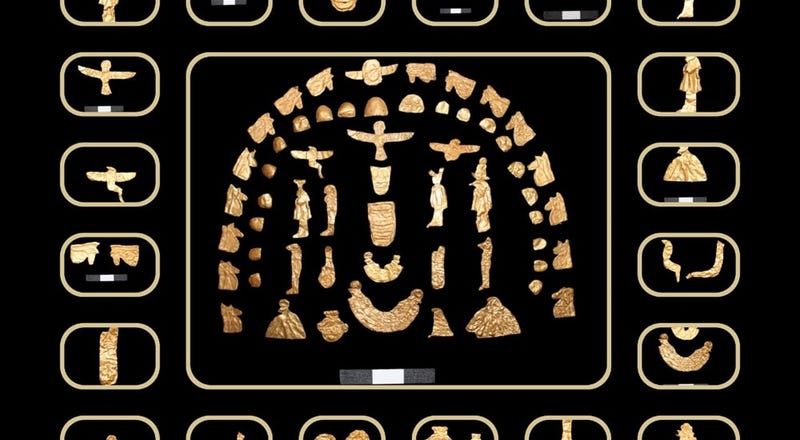
Archaeologists have uncovered a massive find, locating ancient gold artifacts from the last dynasty in Egypt in 63 tombs in the Nile Delta Area, an official from the country shared Monday.
According to Neveine el-Arif, a spokeswoman for Egypt’s Ministry of Tourism and Antiquities, who spoke with the Associated Press, experts are still working to restore and classify their finds, which include gold pieces and jewelry dating back to the country’s Late and Ptolemaic periods.
Some of the items recently found by the Egyptian archaeological mission with the Supreme Council of Antiques could be displayed in museums in Egypt, el-Arif shared.
The team that located the artifacts discovered the mud-brick tombs at the Tell al-Deir necropolis in Damietta city in Damietta governorate, the ministry shared last month.
CBS Chicago reports that archaeologists dated the tombs back 2,500 years, saying that they belonged to rich ancient Egyptians.
The burial site is believed to have contained the remains of the wealthiest and most important people who were a part of the society at the time.
Golden figures believed to act as servants for those in the afterlife were also found with the bodies in the tombs.
Other items uncovered included statues, funerary amulets, and a pottery vessel with 38 bronze coins, all being dated to the Ptolemaic period.
The Ptolemaic dynasty was the last in Egypt before it became part of the Roman Empire. It was founded in 305 B.C., 27 years after Alexander the Great took Egypt in 332 B.C., and one of his generals, Ptolemy, became Ptolemy I.
Leadership was handed down through Ptolemy and ended with Cleopatra.
